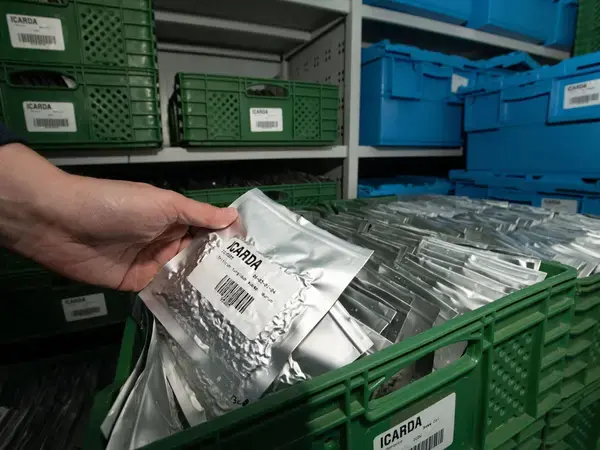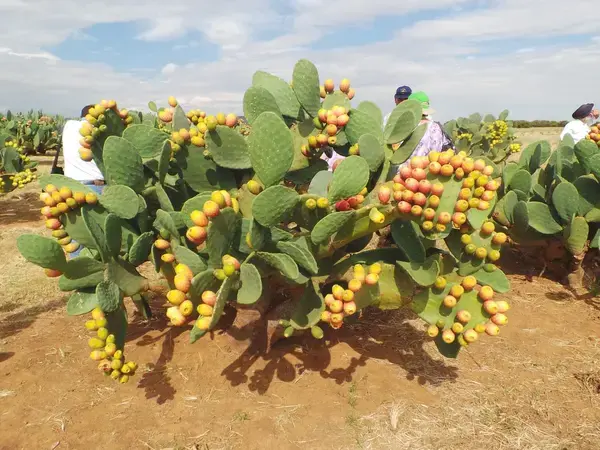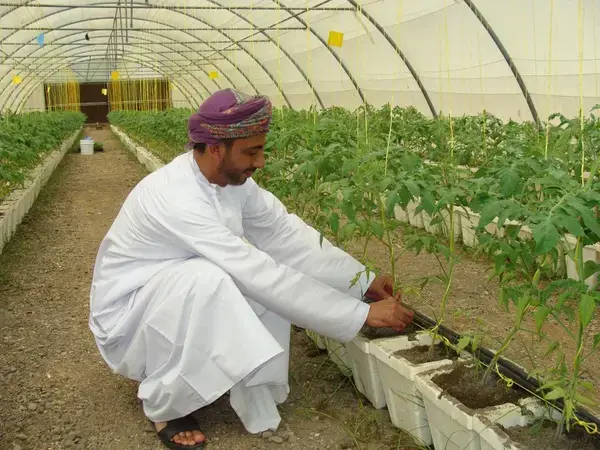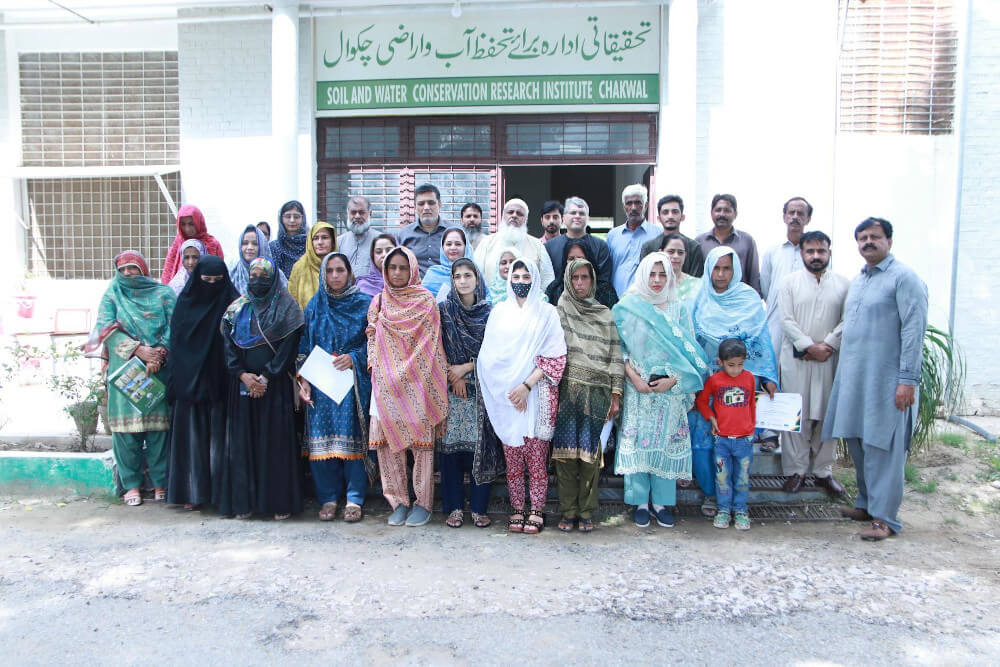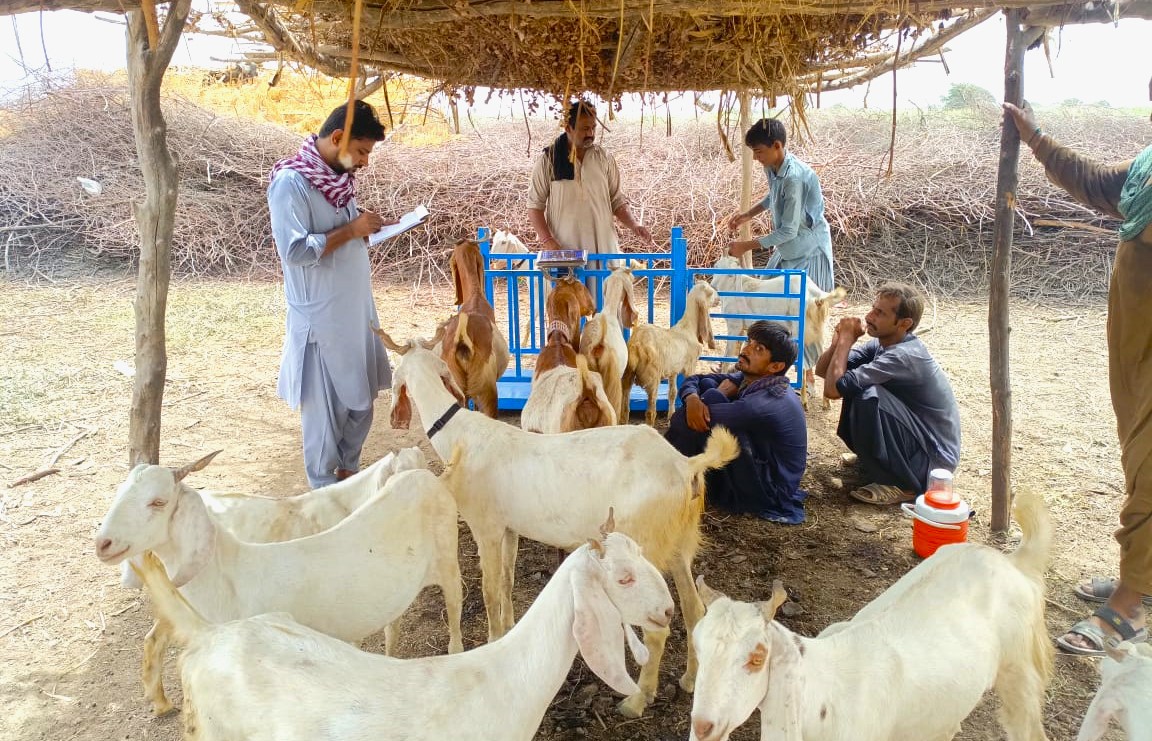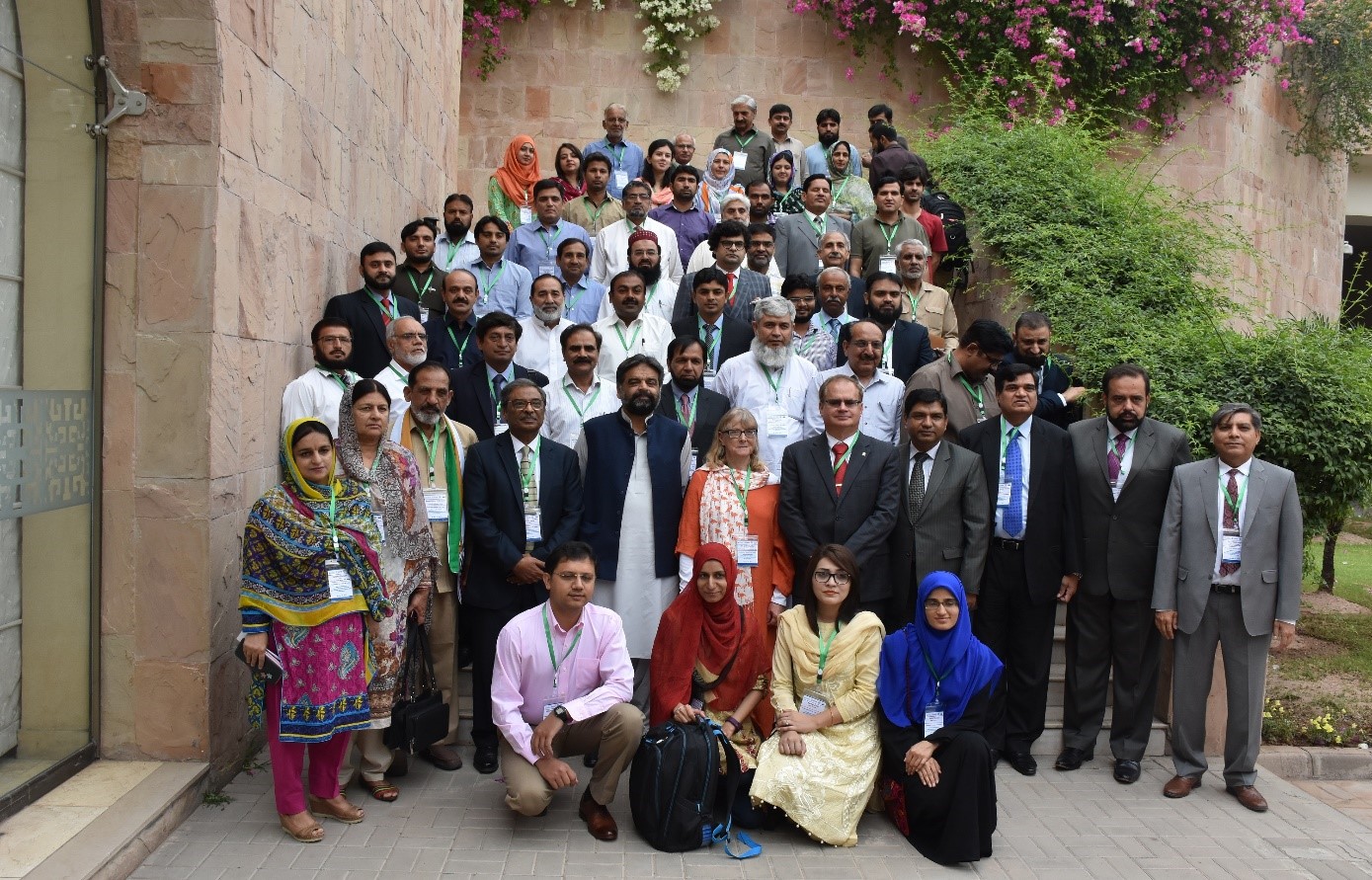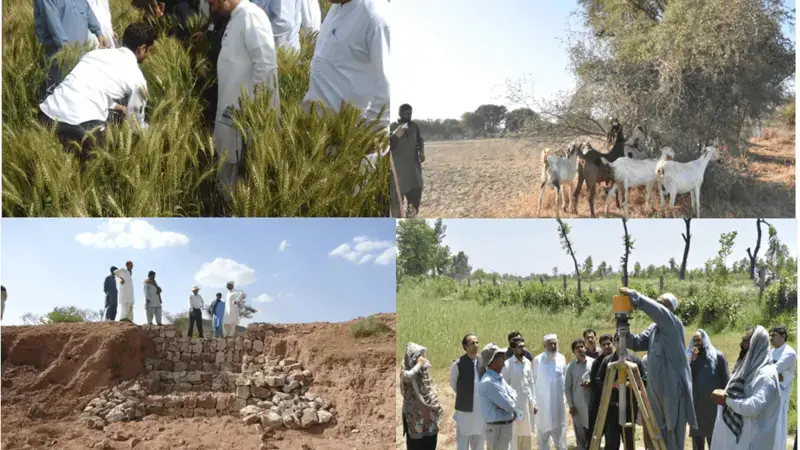
ICARDA Pakistan Country Office established in 2004
Country manager: Dr. Imtiaz Muhammad
Location: National Agricultural Research Center (NARC), Park Road, Islamabad, Pakistan.
Overview
Agriculture is the most important sector of Pakistan’s economy, contributing almost 23% of GDP and employing 37% of the labor force (either full or part-time). However, Pakistan is predominantly a dry-land country where 80% of its land area is arid or semi-arid, about 12% is dry sub-humid and the remaining 8% is humid. Two-thirds of Pakistan’s rapidly increasing population depends on dryland agriculture to support their livelihood, mainly through agro-pastoral activities. However, drylands in Pakistan are severely affected by land degradation and desertification due to unsustainable land management practices and increasing demands on natural resources. The situation is further aggravated by water scarcity, frequent droughts, and mismanagement of land resources, contributing to reduced productivity and increasing rural poverty.
ICARDA collaborates with the Government of Pakistan on improving crop productivity, production, climate-smart crop, soil, and water management practices, conservation agriculture, rehabilitation and reclamation of rangelands, conserving biodiversity, and efficient crop-livestock systems.
Activities
- Identification and promotion of improved high-yielding food and forage crop varieties with appropriate agronomic practices for grain and fodder production in spring and fall.
- Production and scaling of seeds of improved cereals and legume varieties
Development of improved guar, barley, and oats varieties in Punjab and barley, maize, and alfalfa in Balochistan as hay for lean period. - The introduction of bed planting of wheat increased yield to 3,911 kg ha-1 compared with 2,456kg ha-1 in farmers and improved water productivity to 1.60 kg m-2 compared with 0.74 kg m-2.
- Introduction of Pakistan-seeder (happy seeder) for wheat planting in rice stubble to avoid burning rice residue
- Introduction of Gypsum to conserve moisture for following wheat production in rain-fed areas of district Chakwal.
- Identification and selection of best soil and water management technologies & practices and transfer of technologies to farmers through trained Agriculture Service Providers (ASPs)
- Rehabilitation of degraded rangelands in Balochistan by introducing and developing sustainable management practices for improving rangelands - namely water harvesting combined with shrub planting.
- Preventing and controlling internal parasites in small ruminants through synthetic and herbal anthelmintics.
- Increase fertilizer use efficiency, and effectiveness by using the 4Rs methods (right source, right amount, right time, and right placement) and develop alternatives to traditional chemical fertilizers to improve soil fertility & health with the use of bio/organic fertilizers.
- Establish and manage small ruminants (SR) breeders’ cooperatives to improve herd and market performance for smallholder farmers in Pakistan.
- Identify key traits of breeding bucks and products, estimate their implicit prices, and embed preferences into breeding goals in Pakistan.
- Develop inclusive business models for community-based SR breeding programs in Pakistan building on the experience with business models in Ethiopia.
IMPACT
ICARDA supplied improved climate-resilient germplasm of wheat, Barley, lentils, and chickpea to Pakistan since its establishment in 2004, which led to the release of several varieties by the national programs.
ICARDA-improved fodder varieties of Alfalfa and Berseem; their yields were significantly (P<0.05) higher than the local variety. 70% of the seed produced under Village Based Seed Enterprise (VBSEs) was successfully marketed at premium prices. The market price for wheat was around 1,500 rupees (8.75 USD)/50 kg bag, whereas VBSE farmers were able to sell the seed from 2,500 to 3,500 rupees (14.58 to 20.41 USD)/50 kg bag.
More than 100 scientists were trained in different disciplines of ICARDA expertise
The maize variety improved by ICARDA produced 70t ha-1 and 45t ha-1 higher yields than the local variety in villages Begal and Dhulli, respectively in the Chakwal district.
The millet (green) fodder variety developed by ICARDA produced 26% more yield than the farmers’ local variety under medium rainfall in Begal village, district Chakwal.
The ASPs trained by ICARDA provided services for the best soil and water management technologies to 2,816 farmers from 2019-2021 across Pakistan
ICARDA climate-smart water harvesting techniques provided farmers with the opportunity to grow shrubs and conserve water in dry periods in rain-fed areas of Balochistan.
Of the anthelmintics tested, animals treated with Nilzan plus, Ivermectin, and Atreefal Deedan under ICARDA’s livestock programs showed the highest reduction (90-97%) in fecal parasitic egg counts, followed by Deedani (80-86%) and Kirmar (73-76%).
Through supplemental feeding of pregnant ewes, in addition to grazing, enhanced small ruminant production; the ewes showed a live weight gain of 3-5 kg, and lambs/kids survival reached 80-90%.
- ICARDa research for development (R4D) findings enabled the Punjab government to adopt ridge maker and bed planter for wheat planting, zero-till drills (Happy Seeder), Fertilizer Prediction Model validated (ICARDA and University of Agriculture Faisalabad) continue building the capacity of Youth as Agriculture Service Providers (ASPs).

